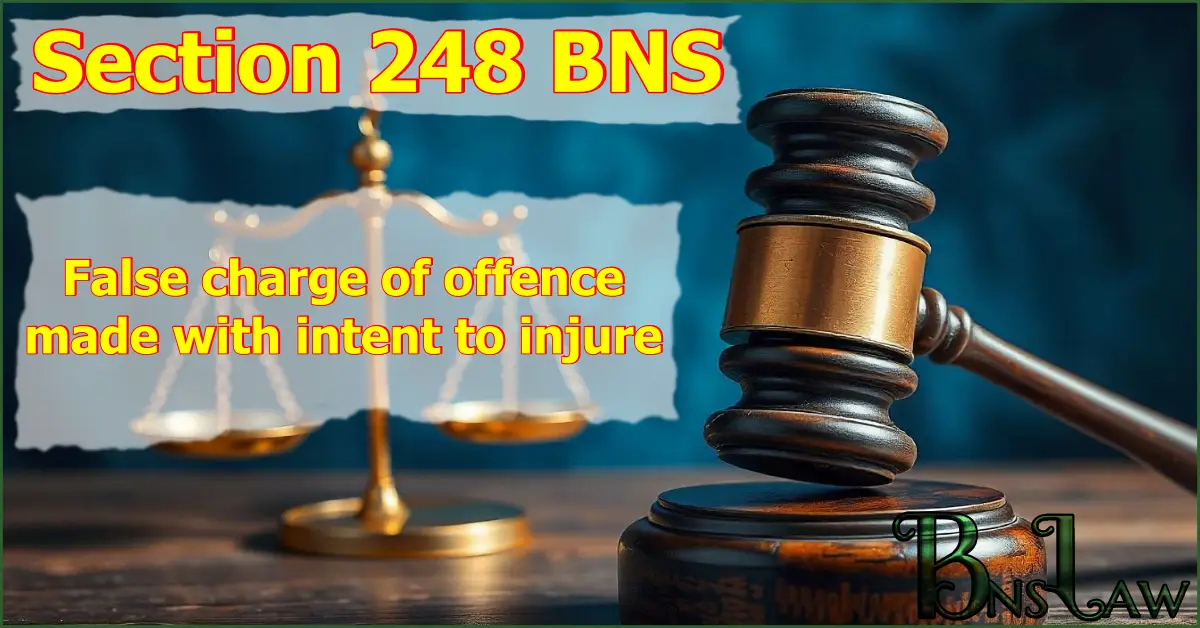Section 248 BNS | BNS 248
Whoever, with intent to cause injury to any person, institutes or causes to be instituted any criminal proceeding against that person, or falsely charges any person with having committed an offence, knowing that there is no just or lawful ground for such proceeding or charge against that person,—
248(a) BNS
shall be punished with imprisonment of either description for a term which may extend to five years, or with fine which may extend to two lakh rupees, or with both;
248(b) BNS
if such criminal proceeding be instituted on a false charge of an offence punishable with death, imprisonment for life, or imprisonment for ten years or upwards, shall be punishable with imprisonment of either description for a term which may extend to ten years, and shall also be liable to fine.
READ OTHER SECTIONS OF CHAPTER XIV — OF FALSE EVIDENCE AND OFFENCES AGAINST PUBLIC JUSTICE
FAQs of BNS Section 248
-
248 BNS punishment and fine
Punishment and fine under Section 248 of the BNS—
248(a): Imprisonment for 5 years, or fine of 2 lakh rupees, or both.
248(b): Imprisonment for 10 years and fine. -
248 BNS cognizable or not
The offence under Section 248(a) and 248(b) of the BNS is non-cognizable.
-
248 BNS bailable or not
The offence under Section 248(a) and 248(b) of the BNS is bailable.
-
248 BNS trial court
Offence specified in Section 248(a) of the BNS is triable by the Magistrate of the first class, while the offence specified in Section 248(b) is triable by the Court of Session.
Important Points
- Cognizable Offences: These are offences where a police officer can arrest a person without a warrant.
- Non-Cognizable Offences: These are offences where a police officer cannot arrest a person without a warrant.
- Bailable Offences: These are offences where the accused can get bail from the police station itself. All bailable offences are listed in the First Schedule of the Bharatiya Nagarik Suraksha Sanhita (BNSS).
- Non-Bailable Offences: Offences in which bail is not granted directly from the police station but after hearing the case in the court, the judge decides when bail will be granted. All non-bailable offences are listed in the first schedule of the Bharatiya Nagarik Suraksha Sanhita (BNSS).
- In the above FAQ, “trial court” means the court that has jurisdiction to try the offence.
- In the above FAQ, the expression “Magistrate of the first class” and “Any Magistrate” does not include Executive Magistrates.
Read other Sections of the BNS
Reference Link: New Criminal Laws (BNS), Ministry of Home Affairs







